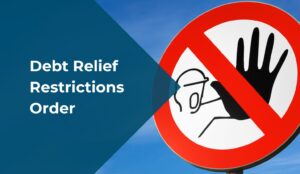If you’re feeling overwhelmed by debt, you’re not alone — and you’re not without options. One of the most popular solutions people turn to is a Debt Management Plan (DMP). It’s designed to help you repay what you owe in a manageable way. But if you’re considering this path, a common and important question arises: “Will a Debt Management Plan affect my credit score?”
At Step Away Debt, we believe in transparency, support, and helping you make confident financial decisions. In this blog, we’ll break down exactly how a DMP may impact your credit score — and why it’s often a positive step forward.
What Is a Debt Management Plan (DMP)?
A DMP is an informal agreement between you and your creditors, typically arranged through a debt advisor. You make one affordable monthly payment, which is then distributed to your creditors.
Key benefits include:
- Lower monthly payments
- Frozen or reduced interest rates
- No more dealing with multiple creditors
How a DMP Can Affect Your Credit Score
Here’s a breakdown of how and where your credit score might be impacted:
-
Short-Term Dip in Credit Score
When you enter a DMP, your creditors may note that you’re paying through a third party. While it’s not a default or bankruptcy, it can temporarily lower your score because you’re not sticking to the original terms of your agreements.
-
DMPs Appear on Your Credit Report
A DMP itself isn’t a formal credit event like bankruptcy, but your accounts may be marked as “arranged payment” or “partially settled”. This notation can stay on your report for up to six years, which lenders may take into consideration if you apply for credit in the future.
-
Access to New Credit May Be Limited
While you’re on a DMP, it’s advisable to avoid taking on new credit. Some lenders may see your involvement in a DMP as a sign that you’re financially stretched.
But it’s Not All Negative — here’s the Bigger Picture
Despite the potential short-term effects, a DMP can be a positive step in the long run:
- You avoid defaults or court action
- You gain control over your finances
- You build healthier financial habits
- You reduce stress and improve your quality of life
And once you’ve completed your DMP, your credit score can begin to recover, often faster than if you had done nothing and fallen further behind.
How to Minimise Credit Score Impact during a DMP
Keep up with DMP payments – timely payments reflect responsibility.
Monitor your credit report – Spot errors and keep track of your progress.
Avoid new borrowing – focus on clearing what you owe first.
Communicate with your creditors – transparency goes a long way.
Conclusion
A debt management plan can affect your credit score in the short term, but it’s often a worthwhile trade-off for long-term financial stability. If you’re struggling with unmanageable debt, the real damage to your credit comes from missed payments, mounting interest, and growing arrears.
At Step Away Debt, we’re here to guide you through every step of your journey toward a debt-free future. A DMP isn’t the end of your financial story, it’s the turning point.





